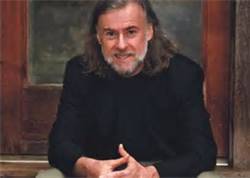In connection with a group at my church, I've been asked to read
Wrecked: When a Broken World Slams Into Your Comfortable Life, by Jeff Goins. Given the
gravitas of the group reading the book and the discussions that will be generated through our reading, this felt like a text I wanted to respond to a bit more formally--a text for which I wanted to articulate my thinking rather than merely scribble notes and comments in the margins. So, I'll try to respond chapter by chapter and see where it takes me.
Chapter 1: You Must Get Wrecked
Well, the chapter starts off with a John Mayer quotation, so I'm not sure what to think about that. I assume that the quotation--"Something's missing, and I don't know what it is"--is a lyric from one of Mayer's songs. I will say that it aligns with this first chapter pretty well. Like Mayer, Goins is also asserting that something is missing, some unknown "it" that get referred to again and again but not quite identified.
I should say that Goins and I got off on the wrong foot, as his opening
chapter makes—or at least begins with—the same sort of simplistic, essentialist
assertions found in the Eldredge books (e.g., Wild at Heart). For instance, he asserts, “We begin life with
a simple understanding—that our lives are tales worth telling and we have an
important part to play” (27). Well,
no. We don’t begin life which this understanding. This perspective is something that is
cultivated--to varying degrees--within us as we grow. Goins
even undercuts his own point—this very point—in his next paragraph. Like Eldredge, Goins presents our lives in romanticized terms. In this
case, all children are imaginative and uninhibited by a concern with “trivial
things” like money, sex, and recognition.
“Without prompting, kids know how to dream up adventures and slay
dragons. To embark on epic voyages and
live out idyllic scenes. To spend hours
in the backyard with nothing but their imaginations” (28). Well, that’s crap. Kids are raised and encouraged to “embark” on
such voyages, just as men and women are raised and encouraged to embrace the
roles and perspectives that Eldredge presents as being intrinsic to our
nature.
Eventually, chapter one got a little better, but I could never really escape the feeling that Goins was pushing too hard, that he was selling something—namely discontent and the promise of contentment.
Something is missing. Something important. Something necessary to making a difference in the world. And most of us are afraid to find out what it is. Because we know. It’s the secret we’re afraid to admit: this will cost us our lives. (29)
Well, sure. Many of
us do have the sense that something is missing.
On the other hand, we live in a culture that operates largely by seeking
to cultivate discontentment in order to market things to us. Marketers assure us that our lives are empty,
so we should pursue thrill and independence by purchasing a new car. Or our lives are provincial and dull, so we should
travel. Or our lives are filled with
unnecessary burdens, so we should by a robotic vacuum.
To be clear, I should say that I don’t think Goins
is merely trying to “sell us something,” but his tone and rhetoric just feel
too…unexamined…too consistent with the very status
quo he’s attempting to help us see beyond.
Because of this, he risks seeming disingenuous. When introducing the title of the book, he writes: “…they all sang a similar song:
wherever there is pain without explanation, hope amidst despair, redemption in
spite of tragedy, that’s where they wanted to be. Walking away from each experience, people
would tell me how they felt, and they all used the same interesting word: wrecked” (29-30). On this point, I simply don’t believe
him. All of these folks with their
various experiences all used the word wrecked to describe their experience. The word doesn’t strike me as that
common. I recognize this may say more about my mindset as I read the chapter than it does about Goins and/or his argument, but the presentation of this anecdote leads me to feel like Goins
is trying to create a buzzword rather than being honest.
Certainly, Goins presents moments and perspectives that
challenge and encourage in meaningful ways.
I really like the definition of wrecked
as being “disabused of the status quo
“ (32), and I really like the acknowledgment that compassion “means literally ‘to suffer with’” (37). I think the best articulation of what he’s
getting at is found on page 40:
If we are to follow the Jesus who suffered with us and bled for us, we too must suffer. We must hold the dying in our arms. We must shed tears for hungry stomachs, trafficked children, and wandering souls. This is what He wants for us. It’s the reason we are called to lay down our nets and take up our crosses to pursue the Suffering Servant. And it’s the one thing we will avoid at all costs. It is not enough to feel bad. […] We must act. (40)
Yes.
Go with
that.
Help us explore and pursue that
calling.
But do so without resorting to a romanticized and essentialist ideal of youth that presents adulthood as the problem.
Do so without
the hyperbole that seems to turn this whole concern into a decidedly First
World problem.
And, for the sake of all that is holy, do so
without mangling Emily Dickinson.

